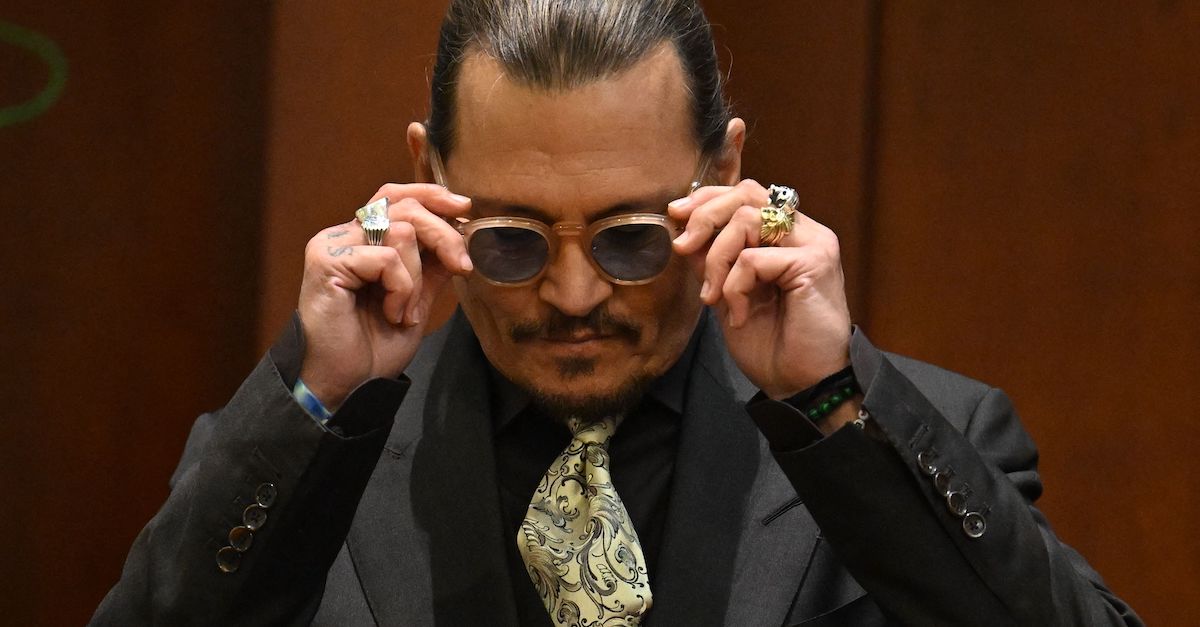
Actor Johnny Depp owes the American Civil Liberties Union $38,000 for attorneys’ fees in complying with a subpoena for evidence that he used in his defamation battle against ex-wife Amber Heard, a judge ruled on Friday.
The award amounted to less than half of the fees that the ACLU requested.
“Attorneys, like taxes, are a fact of life,” said Manhattan Supreme Court Justice Arthur Engoron, who disclosed at the top of the hearing that he is a member of the ACLU.
Engoron emphasized that nothing about his being a member would pose a conflict in the fee dispute.
The ACLU’s lawyer Stephanie Teplin, from the firm Patterson Belknap Webb & Tyler, argued that $86,253.26 was reasonable reimbursement for production costs and expenses. Engoron compared her prestigious firm to a “Cadillac,” when all he said was needed for a simple discovery dispute was a “Ford.”
Teplin noted that Depp sought thousands of documents spanning a six-year time period, and New York law provides for the reimbursement of reasonable production expenses to a non-party in litigation.
She added that the ACLU made an attempt to limit its cost by limiting the scope of the subpoena, but Depp insisted upon the broader requests.
That argument did not seem to move Justice Engoron and his law clerk Allison Greenfield, who noted that Engoron upheld the original scope of the subpoenas.
Noting that he did not follow Depp and Heard’s blockbuster trial closely, Engoron coyly asked how the ACLU got embroiled in the Hollywood legal battle. Teplin did not answer that one directly, but her adversary did.
Depp’s lawyer Jessica N. Meyers, from Brown Rudnick, called the original request for fees “exorbitant and unreasonable” in a legal brief. Meyers opined that the judge’s final ruling was “fair,” after he pronounced it.
During oral arguments, Meyers argued that any compensation would be unfair given the ACLU’s role in the editorial that led to the Depp and Heard case.
“They were responsible for drafting and placing the op-ed that the Virginia jury just found to be defamatory to Mr. Depp,” Meyers said.
The defamation trial between Depp and Heard revealed the ACLU’s role in crafting and placing the editorial at issue in the lawsuit.
On Dec. 18, 2018, the op-ed ran under Heard’s name with the title “I spoke up against sexual violence — and faced our culture’s wrath. That has to change.” Her bio described her as the ACLU’s ambassador on women’s rights. The same editorial now contains a lengthy editor’s note disclosing that a Virginia jury found that three of its statements were defamatory, including the headline.
“Mr. Depp should not have to compensate the respondents for the involvement in tortious conduct,” Meyers added.
Behind Heard’s byline, the trial revealed, were several lawyers from the ACLU and her legal team. They carefully crafted it to avoid naming Depp or even explicitly claiming that her ex-husband abused her — or so they thought.
Instead, the editorial stated that Heard “became a public figure representing domestic abuse,” rather than a survivor of it. That did not spare Heard from a stinging $15 million jury verdict against her, later reduced to $10.3 million because Virginia law caps punitive damages. Jurors also found that Depp defamed Heard through one statement via his lawyer Adam Waldman, awarding her $2 million. The math came out to a substantial win for Depp.
The ACLU’s attorney denied the implication that the group was a “tortfeasor,” the term for someone who commits a tort. Depp’s attorney said she didn’t allege that, only that the ACLU was involved in one.
Depp’s attorneys argued that Heard used the ACLU to burnish her credibility and that the civil rights group hoped to reel her in as a major donor.
When her divorce became finalized, Heard pledged to donate her $7 million settlement in full to two charities: half to the ACLU and half to the Children’s Hospital Los Angeles. Depp’s attorneys made Heard’s failure to follow through on those pledges a central part of their case. ACLU general counsel Terence Dougherty testified that Heard donated only $1.3 million of her promised $3.5 million, mostly through contributions by wealthy third parties like Elon Musk.
Internal ACLU emails revealed that their staff also pitched the editorial to the Post via an email stating that Heard was “beaten up” by Depp.
The indirection of Heard’s editorial ultimately didn’t protect Heard legally. The jury found the op-ed defamed Depp by implication. The ACLU has since faced criticism for its role in the celebrity spat. Critics said that the group misled the public about the nature of Heard’s pledges and betrayed its commitment toward due process for those accused of a serious crime.
Read the written order, below:
(Photo by JIM WATSON/POOL/AFP via Getty Images)